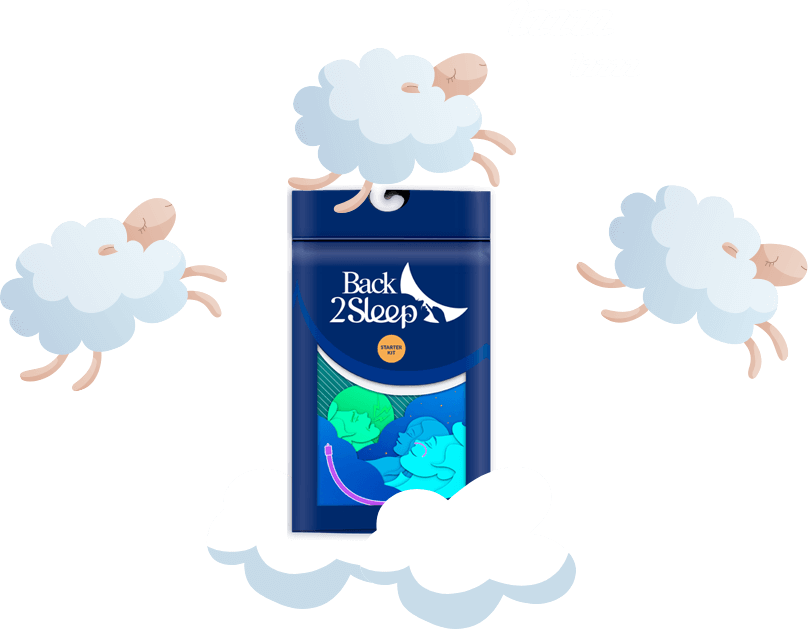Understanding jet lag and its effects on our biological clock
What exactly is jet lag?
This is a physiological phenomenon that occurs when you cross several time zones quickly, usually by plane.
It is caused by a misalignment between your internal biological clock and the day/night rhythm of your new destination.
Your body functions according to circadian rhythm a biological cycle of about 24 hours that regulates many physiological functions, such as :
- sleep,
- body temperature,
- the secretion of hormones.
The main symptoms of jet lag
Jet lag can affect your well-being in a number of ways:
-with fatigue and daytime sleepiness: you feel exhausted during the day and find it hard to stay awake,
- with difficulty falling asleep and waking up at night: your sleep cycle is disrupted, making it difficult to fall asleep at the local time,
-with digestive problems: you may experience nausea, constipation or diarrhoea,
-with headaches and irritability: fatigue and hormonal imbalance can cause headaches and irritability.
These symptoms are generally more pronounced when you cross several time zones (at least three) and can last several days while your body adjusts to the new rhythm.

How to prepare for your trip to minimise jet lag
Gradually adjust your sleep rhythm before departure
To minimise the effects of jet lag, you can start adjusting your sleep patterns a few days before you leave.
Here are a few techniques we've tried out to help you achieve this:
- Gradually stagger bedtimes and rising times:
If you're travelling east, try to go to bed and get up an hour earlier each day.
If you're travelling west, do the opposite, going to bed an hour later and getting up an hour later.
-Exposure to natural light: light helps regulate your biological clock.
Expose yourself to morning light if you're travelling east, and evening light if you're travelling west.
This will help to adjust your circadian rhythm more quickly.
Choosing the right flight and arrival time
Your choice of flight and arrival time can also influence your adjustment to the new time zone:
-Night flights vs. day flights: night flights can be advantageous, as they allow you to sleep during the journey, which can help synchronise your body clock with the time zone of your destination.
-Plan to arrive in the late afternoon: arriving in the late afternoon allows you to stay awake until the local evening. This makes it easier to adjust to local time and helps reduce the effects of jet lag.
Tips for better sleep when travelling
Creating an environment conducive to sleep on the plane
To optimise your in-flight sleep, here are a few practical tips:
- use a sleep mask to block out ambient light,
- wear earplugs or noise-cancelling headphones to reduce disturbing sounds,
- opt for loose-fitting, comfortable clothes made from natural fibres.
I've personally tested a number of different earplugs, and the expanded foam models offer good value for money.
Managing your diet and hydration
Good management of your diet and hydration will help you get a good night's sleep in flight:
Preferred foods:
- bananas are rich in magnesium and vitamin B6, and help to produce melatonin,
- walnuts and almonds, which contain tryptophan, a precursor of serotonin,
- yoghurt or fromage frais, which provide light protein and calcium.
Foods to avoid:
- red meat, which is rich in protein and stimulates the production of adrenaline,
- spicy food, which can interfere with digestion and body temperature regulation,
- caffeine-rich foods such as coffee, tea, dark chocolate and energy drinks.
Expert advice: Sarah P., an experienced flight attendant, recommends that you travel with your make-up removed and that you regularly apply a moisturising cream to your face and hands to counteract the drying effects of cabin air.

Strategies for recovering quickly on arrival
Exposing yourself to natural light at the right time
✅ Light is the most powerful synchroniser of your biological clock.
Here's how to use it effectively:
- expose yourself to the bright morning light if you're travelling east,
- look for late afternoon light if you're heading west,
- aim for at least 10,000 lux for 30 to 60 minutes for optimum effect.
Source: Harvard journal which focuses specifically on this subject.
Adapting your activities and diet to the local time zone
As soon as you arrive, set your pace according to local time:
- stay awake until the evening, even if you're tired,
- take your meals at the usual local times,
- opt for protein-rich foods in the morning (eggs, yoghurt) and carbohydrate-rich foods in the evening (pasta, rice) to help you wake up or sleep.
On my last trip to New York, I followed this advice to the letter.
✅ As a result, I was up and running the day after I arrived, without the usual effects of jet lag.
The Dr. Charles Czeisler, an expert in sleep medicine at Harvard, recommends: "Expose yourself to natural light as soon as possible after your arrival. This helps your internal clock to adjust more quickly to the new time zone."

The role of melatonin in managing jet lag
What is melatonin and how does it work?
Melatonin, often called the *sleep hormone*is produced by the pineal gland in the centre of the brain.
Its production is triggered by darkness and inhibited by light, peaking between 2am and 3am.
✅ Benefits of melatonin:
- helps reduce the time it takes to fall asleep,
- improves sleep quality,
- helps regulate circadian rhythms disrupted by jet lag.
⚠ Precautions for use:
- do not drive or operate machinery after taking it,
- consult a doctor if you are seriously ill or taking specific medication,
- not recommended for pregnant or breast-feeding women or children.
Relaxation techniques to help you fall asleep
Meditation and deep breathing
Meditation and deep breathing are powerful tools to help you fall asleep, even when travelling.
Here are two simple exercises:
- The 4-7-8 technique:
- breathe in through your nose for 4 seconds,
- hold your breath for 7 seconds,
- exhale slowly through your mouth for 8 seconds.
- breathe in for 5 seconds,
- breathe out for 5 seconds,
- repeat for 5 minutes.
The importance of a bedtime routine, even on the move
Maintaining a bedtime routine, even when travelling, signals to your body that it's time to sleep.
Here are a few soothing rituals to adopt:
- take a hot shower 1 to 2 hours before bedtime to help lower your body temperature,
- read a book or listen to a relaxing podcast,
- practice gentle stretching or light yoga.
To create a sleep-inducing environment in your hotel room:
- use a sleep mask and earplugs to block out light and noise,
- set the room temperature to between 18 and 20°C,
- avoid screens at least one hour before bedtime to limit exposure to blue light.

Frequently asked questions about jet lag and sleep
Q. How long does it take to recover from jet lag?
- The time taken to recover from jet lag varies according to a number of factors:
- the number of time zones crossed: in general, allow a day's adjustment per time zone,
- the direction of travel: recovery is faster heading west than east,
- the age of the traveller: older people take longer to adapt.
On average, the symptoms of jet lag diminish gradually over 3 to 10 days.
🔎 For example, for a flight from Paris to New York (6 time zones), it takes around 6 days to recover on the outward journey, but 8 days on the return.
Q. Is jet lag harder to cope with as we get older?
- Yes, age has a significant impact on adaptation to jet lag:
- older people experience more intense symptoms,
- their adaptation time is generally longer,
- their biological clock is less flexible, which makes synchronisation more difficult.
To mitigate these effects, older travellers can:
- allow more time for adaptation on arrival,
- get more exposure to natural light to help resynchronise their circadian rhythm,
- maintain good hydration and a balanced diet during your journey.

- Choosing a selection results in a full page refresh.
- Opens in a new window.







